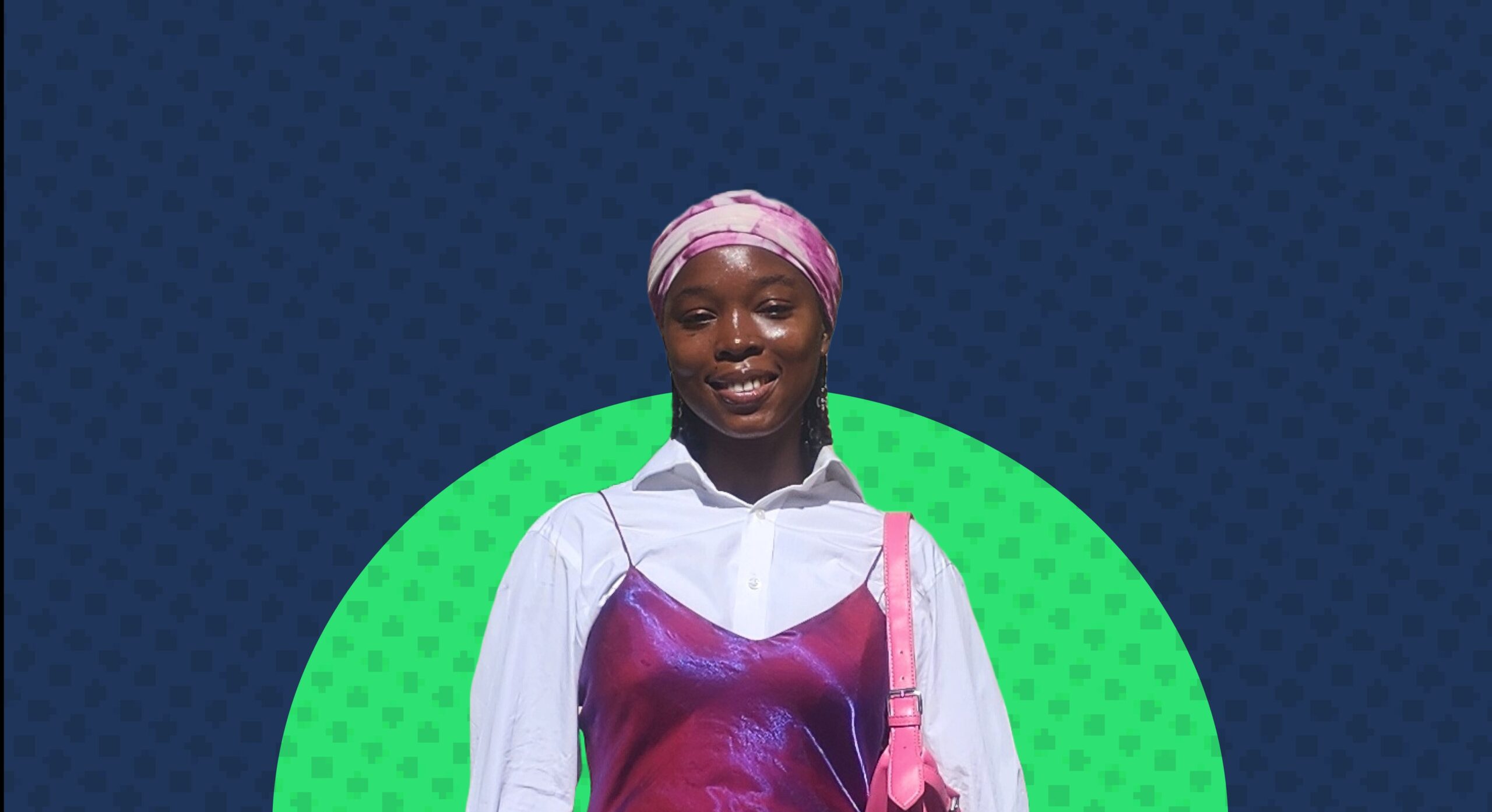If your career journey were a movie, what would the title be and why?
I don’t think I could come up with a movie title for my life just yet. I feel like I’d need at least another 10 years doing what I’m doing before I could say my life has become a movie.
Okay, see you in ten years. Describe a time you faced a significant obstacle in your tech career. How did you overcome it?
Honestly, the biggest challenge I faced was when I was just starting out. Breaking in, trying to find my footing—it was tough. I started as a social media manager, did some digital marketing for Edtech and Fintech startups, but it just didn’t work out.
Pivoting to content was a big step for me. I was young, with only bits of experience, and my work was often seen as inexperienced. I was jumping from one opportunity to another, struggling to find something secure. But when I switched to content, I put everything into building a solid portfolio—writing about the tech scene in Nigeria, covering cryptocurrencies, eCommerce, and more.
That portfolio became my proof, something tangible to show I could deliver solid work. Looking back, that pivot to content was what made all the difference, and I went into it with a clearer mindset and a stronger focus.
What’s your experience with navigating cultural differences in a global tech environment been like?
When I pivoted to content, I positioned myself as someone deeply knowledgeable about US-specific topics. I built my portfolio around niche U.S. themes—writing about finance, like how people save or spend in the U.S.—while for publications, I focused on Nigerian issues, tech in Africa, and local stories.
It’s a bit of a balancing act, having two distinct types of writing across different markets, but it’s worked for me. I think many hiring managers might be hesitant when they see a Nigerian applicant, but those who took a chance and saw my work were impressed. They knew I understood the cultural context in the US and the UK, not just Africa. That dual focus in my portfolio has been key. I show up with U.S.-centric samples for content roles and African-focused tech stories for publications, and it’s opened doors.
If you could redo one decision in your career, what would it be and why?
If I could go back, I’d start writing much earlier. When I first got into social media management and digital marketing, I was moving aimlessly, and I wasted a lot of time that I could’ve used to build a solid content portfolio. I was doing decent work, sure, but it wasn’t impactful enough.
I’d skip social media and dive straight into content. Social media management and digital marketing ended up costing me precious time, and by the time I noticed my peers moving ahead, I was already behind. I’m glad I caught up eventually, but it took a lot of effort to get there.
What’s the biggest financial risk you’ve taken in your career, and how did it impact you?
Right now, some of the financial risks I’m taking involve working for publications that start off paying low but promise to raise the rate after a few assignments. It’s risky, but with the content market being so saturated, everyone’s trying to keep something steady coming in. I’ve had to take on a few of these recently, even though the starting rate is really low with the hope that it’ll pay off with better rates down the line.
Have you ever turned down a job offer due to compensation issues? If so, can you elaborate on that experience?
I’ve turned down many job offers due to compensation issues because, frankly, the pay wasn’t worth what I’m offering. Sometimes, there’s a real disconnect in how the collaboration is valued, and I just have to walk away. Lately, it’s been especially tough; a lot of places pay very little, with no room for negotiation. They just set a low rate and don’t give you the chance to discuss higher pay.
I’ve had opportunities where I had to turn them down politely because the offers were way below my rate. It’s hard to accept a rate that doesn’t reflect the years I’ve spent building expertise and reaching a senior level. Some offers are even less than half of what I charge now, and taking them would just feel like a setback. So, I turn those down, hoping something better will come along.
Have you ever felt unprepared to manage the money you were earning, and how did you navigate that?
I’ve never felt financially unprepared because most of what I earn goes toward family expenses. I do have some savings, but a large part of my income is dedicated to supporting my family. For what I currently make, it’s pretty straightforward to break down—it goes into different buckets: family expenses, a bit into savings, and a portion for my studies. I’m studying outside Nigeria, so there’s a lot to spend on, and once a paycheck comes in, it’s immediately divided up into these channels that need it.
Get passive updates on African tech & startups
View and choose the stories to interact with on our WhatsApp Channel
Explore




